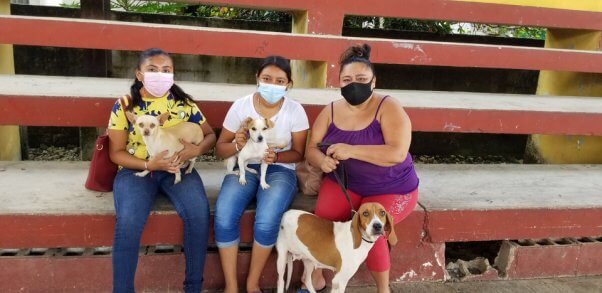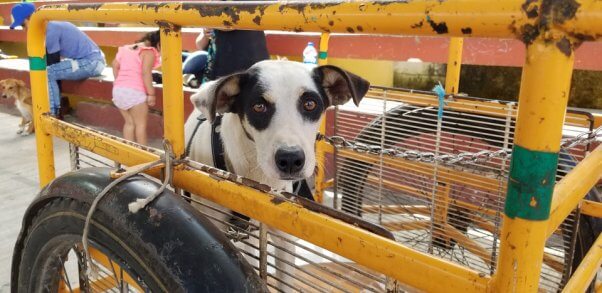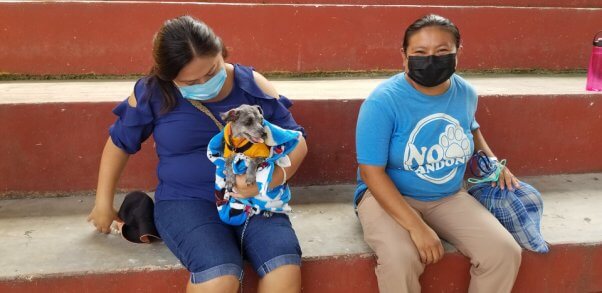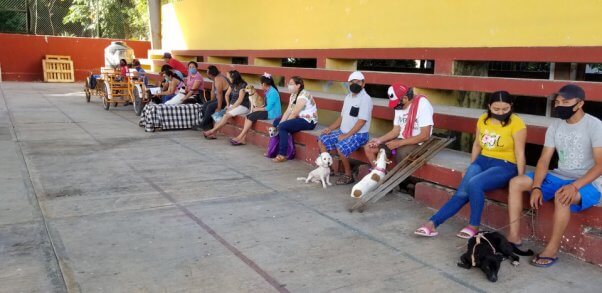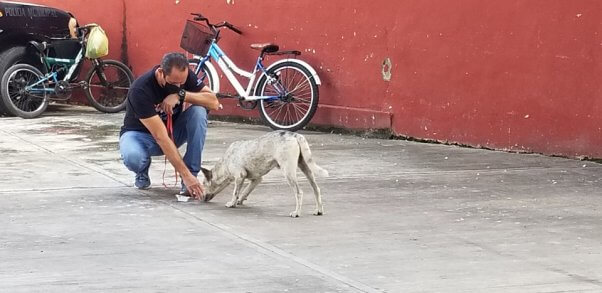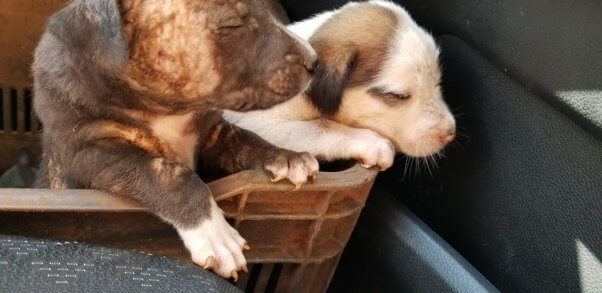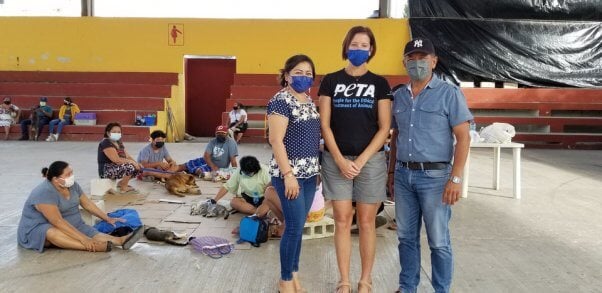‘Fixing’ to Help: PETA’s Successful Spay/Neuter Clinic in Chichimilá
Unlike humans, dogs and cats can’t do their own family planning. It’s up to their guardians to make the responsible choice to have them spayed or neutered in order to help curb the companion animal overpopulation crisis. However, sometimes resources aren’t accessible or available at all. That’s why PETA is putting in the work to reduce the number of homeless animals and help care for animals already in need.
Lifesaving Care Given by PETA in Chichimilá, Mexico
PETA staff and a talented team of veterinarians made their way to Chichimilá, Mexico, with a mission: to help nip the homeless-animal crisis in the bud. The clinic’s patients rolled up to the event in style—on the backs of bike taxis, in backpacks, and even in makeshift pillowcase carriers.
The crew, supported by a generous donation from the Dancing Star Foundation, set up a temporary spay/neuter clinic and helped inform community members about the needs of their animal companions. Volunteer Gabriel Lopez Ceballos helped coordinate the event, and veterinarian Jorge Arturo Dzul Leon and his team from Petsland Cancún performed the sterilization surgeries. Chichimilá Mayor Francisco Medina Martin made an appearance at the clinic to encourage community turnout.
Nearly 150 animals were sterilized at the Chichimilá event. PETA’s staff also counseled many people on the importance of letting dogs live indoors instead of chaining them outdoors or allowing them to roam. When not working in the clinic, PETA’s supporters treated stray animals for fleas, ticks, and heartworms. Leftover medication will be used at another PETA clinic, at Cancún’s municipal animal shelter, helping even more vulnerable dogs and cats in the area.
Above and Beyond: PETA Supporters Help Two Ailing Puppies
As the last animals were recovering from surgery, a woman approached and asked a PETA staffer to visit her home in the countryside. Word had spread that she loves dogs, so many had been abandoned on her property over the years. She said that she was doing the best that she could to care for them but was stretched far beyond her means. Our staffer made the journey to her home and found many dogs in poor health. To help, our staffer gave the woman food, treated the adult dogs, and even found a veterinarian still in the area after working at the clinic who took two sickly pups back to Cancún for treatment and possible adoption once they were well.
How PETA Clinics Mitigate the Homeless-Animal Crisis
In just one year, an unspayed cat can give birth to 12 kittens and an unspayed dog can give birth to 16 puppies—which means that PETA’s Chichimilá event could prevent the births of more than 1,800 animals in the next 12 months alone. On any given day in the U.S., there are roughly 70 million homeless animals. Across the world, the number of homeless animals is almost unfathomable.
Funding for temporary sterilization clinics like PETA’s in Chichimilá helps limit the suffering of animals for generations, as fewer unsterilized dogs and cats mean fewer animals will be born into communities that don’t have the resources to care for them. Please, help us limit the continued suffering of homeless and vulnerable animals:

